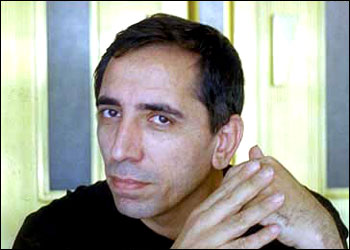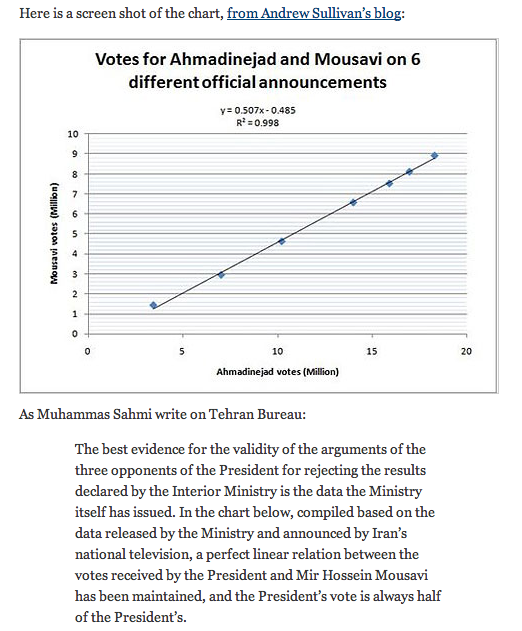Meint George Packer im New Yorker, dem die bisherigen Äusserungen der amerikanischen Regierung viel zu mutlos sind. Realismus soll kein Fetisch werden, meint Packer, und keine Entschuldigung fürs Zusehen bei einer brutalen Unterdrückung:
I understand that the Administration wants to let the chaos in Iran play itself out without committing to a position that might be rendered hollow by events. I understand and agree with its continued insistence on pursuing a policy of negotiation that’s in America’s interest. I understand that this head-on collision between interests and values is not at all easy to navigate. But “realism” should no more be an ideological fetish under Obama than “freedom” was under Bush. …
In much of the punditry calling for dialogue with Iran, there’s been a strange naivete about the true nature of the regime—a confusion between the sophistication and tolerance of the Iranian people, and their rulers, who have always taken the most brutal measures to hold onto power. Some advocates of negotiation seem to think that the resistance and stupidity have all been on our side—that if only America showed a little respect for Iran, called it by its rightful name of “Islamic Republic,” stopped talking about carrots and sticks (which Iranians associate with donkeys), then Iran’s rulers would be glad to start talking. It turns out that they have more to fear from talk than we do—in fact, at the moment it’s hard to know exactly what they have to gain by it and a lot easier to see what they have to lose. Perhaps they have a keener sense of their own interests than American commentators, so obsessed with America’s own behavior, imagined.
With riot police and armed militiamen beating and, in a few reported cases, killing unarmed demonstrators in the streets of Iran’s cities, for the Obama Administration to continue parsing equivocal phrases serves no purpose other than to make it look feckless. Part of realism is showing that you have a clear grasp of reality—that you know the difference between decency and barbarism when both are on display for the whole world to see. A stronger American stand—taken, as much as possible, in concert with European countries and through multilateral organizations—would do more to improve America’s negotiating position than weaken it. Acknowledging the compelling voices of the desperate young Iranians who, after all, only want their votes counted, would not deep-six the possibility of American-Iranian talks. Ahmadinejad and his partners in the clerical-military establishment will talk to us exactly when and if they think it’s in their interest. Right now, they don’t appear to. And the tens of millions of Iranians who voted for change and are the long-term future of that country will always remember what America said and did when they put their lives on the line for their values.
Das Problem bei einer stärkeren Einmischung der USA ist meiner Ansicht nach dies: Man liefert die Opposition noch mehr der Regierungspropaganda aus, sie sei vom Westen ferngesteuert und verfolge die Interessen der Feinde Irans.
Den Punkt zu treffen, an dem man sich von dieser Rücksichtnahme frei machen sollte, ist schwer. Man will ja nicht noch zusätzliche Vorwände liefern, die Unterdrückung zu forcieren.


